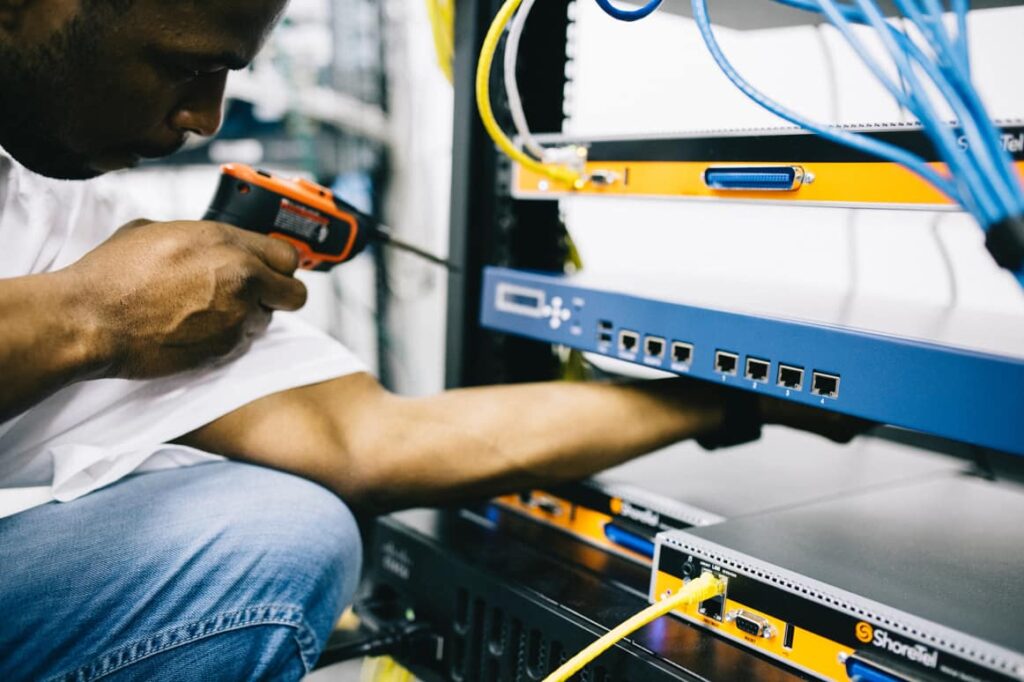A network engineer is responsible for designing, implementing, and maintaining the computer networks that support an organization’s data and communications systems. This can include both local area networks (LANs) and wide area networks (WANs), as well as various types of networking hardware and software. Some specific responsibilities of a network engineer might include:

Roles and Responsibilities of Network Engineer
1. Designing network infrastructure: This can include choosing the appropriate networking hardware (Routers, Switches , Firewall, etc.) and software as well as determining the best network topology or layout and configuration for the network.
2. Implementing and configuring network hardware and software: This can include installing routers, switches, firewalls and other networking equipment, as well as setting up and configuring network protocols and security measures.
3. Monitoring and maintaining the network: Network engineers are responsible for ensuring that the network is operating efficiently and effectively. This can include troubleshooting issues, identifying and resolving problems, and performing regular maintenance tasks.
4. Managing network security: Network engineers are responsible for ensuring that the network is secure against threats such as viruses, malware, and unauthorized access. This can include implementing security measures such as firewalls, intrusion detection systems, and encryption.
5. Providing technical support: Network engineers may be responsible for providing technical support to users who are experiencing problems with the network or networking equipment. This can include diagnosing and troubleshooting issues, as well as providing guidance and assistance to users
6. Managing network resources: Network engineers may be responsible for allocating network resources such as bandwidth and storage, and ensuring that the network is optimized for performance and efficiency.
7. Managing network documentation: Network engineers may be responsible for maintaining accurate and up-to-date documentation of the network infrastructure and configuration, including diagrams, network maps, and inventories of hardware and software.
8. Managing vendor relationships: Network engineers may work with vendors and service providers to purchase networking equipment and services, and to negotiate contracts and service level agreements.
9. Staying up to date with new technologies and best practices: Network engineers should be familiar with the latest developments in networking technology and best practices, and be able to apply this knowledge to improve the performance and security of the network.
10. Providing training and guidance to other team members: Network engineers may be responsible for training and mentoring other team members, including junior network engineers and IT staff.
I hope by going through this article, you must have got the clarity & understanding on roles and responsibilities of network engineer & will be helpful in deciding to or not to take-up networking domain as your career.